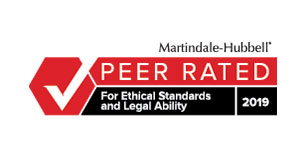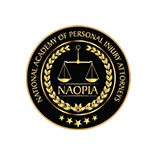When you file a personal injury lawsuit or a product liability claim, it’s up to you to prove that the other person is at fault for the harm they’ve caused you.
For example, if you’re in a car accident the other driver caused, you can file a lawsuit to seek compensation. But you often have to prove that the driver was driving recklessly or acting negligently.
There are some injury cases where you don’t have to prove negligence or fault, though. West Virginia has a strict liability standard that applies in certain situations where someone is injured.
The law commonly applies in cases of defective products that cause harm, animal bites in certain states, and extremely hazardous activities like using explosives.
If you or a loved one has been injured and you think you may have a strict liability claim, call Prim Law’s office in Hurricane, West Virginia at 304-201-2425 or fill out a form online. Your initial consultation with a Prim Law attorney is always free.
What “Strict Liability” Means
Strict liability, also known as absolute liability, is a theory that assigns a party legal responsibility for injuries or damages, even if that party was not negligent or at fault.
In other words, the defendant (the person being sued) is still held responsible for any injuries to the plaintiff (the person suing) even if they followed the law and took precautions to prevent them.
Why Negligence and Fault Matter
To understand why strict liability is different from other cases, you must understand negligence and fault.
West Virginia is an at-fault (or tort) state. In an at-fault state, the person who is found at-fault for an accident or incident is responsible for paying the other person’s damages or compensating them for expenses like medical bills or pain and suffering.
Compare that to a no-fault state, which means your insurance company automatically pays the damages, regardless of fault, up to a certain specified limit. These laws are often discussed in car accidents, where assigning fault can be tricky.
The plaintiff filing a lawsuit in an at-fault state, however, has to prove that the defendant is at-fault in order for them to pay damages in these cases.
That’s why a strict liability standard is different from regular cases where you must prove fault or negligence. A strict liability standard means that that proof of fault or negligence is not necessary to hold the defendant liable for their actions.
Cases Where Strict Liability May Apply
As mentioned previously, there are certain cases where strict liability often applies.
Defective products
Defective or dangerous products that cause harm are one type of strict liability case.
If you are injured by a defective product and you sue the manufacturer, you don’t need to show that the manufacturer was reckless or failed to test their product properly. You can be compensated even if the manufacturer followed all the rules and built the product to the best of their ability.
Animal bites
Animal bites are another common case that involves strict liability. Anyone who keeps a wild animal is held responsible for harm that the animal may cause another person. Strict liability in animal bite cases varies from state to state, however.
As a limited strict liability state, West Virginia has a “One Bite Rule” that states that the owner can only be held strictly liable if they know of the animal’s potential to attack.
In other words, the owner may not be liable if it was the first time their dog bit someone. It may also apply if the dog was running loose at the time of the attack.
Ultrahazardous activities
Lastly, strict liability can be applied if someone participates in ultrahazardous activities or creates abnormally dangerous conditions and causes harm to another person.
Because certain activities or conditions are inherently dangerous and high-risk, the defendant may be held strictly liable even if they followed the law in preventing any accidents.
For example, if a construction team is demolishing a building and uses explosives to blow apart large amounts of materials, and someone is injured, the person in charge may be held strictly liable for failing to exercise reasonable care when doing someone so inherently dangerous.
Winning Strict Liability Lawsuits
If you file a lawsuit against another party for your injuries from an animal bite, defective product, or ultrahazardous activity, you do have to provide some evidence that supports your case.
As the plaintiff, you must provide:
- Proof of injury
- Proof that the defendant’s product or actions caused your injury
- Proof that the defendant had control over the product or animal, or that their activities were abnormally dangerous/ultrahazardous
Again, in strict liability cases, you don’t have to prove that the defendant was negligent or reckless, just that they were responsible for what caused you harm.
Just because you don’t have to prove negligence or fault doesn’t automatically mean you’ll win the case, however. The defendant and their attorney may say that you voluntarily assumed risk if you bought or used a defective product.
Or, if you visited someone and knew that they stored dangerous explosives on their property, you assumed the risk when you visited anyway.
Prim Law Can Help With Your Injury Case
Because strict liability law can be complicated, having a personal injury lawyer or product liability lawyer on your side may help you win your case.
You may not know who is actually responsible for injuries from ultra-hazardous conditions or a defective product, or if your animal bite case falls under the One Bite Rule or not.
Our injury attorneys can help you build a case in your favor and fight for the full compensation amount that you deserve.
If you or a loved one has been injured and you think you may have a strict liability claim, call Prim Law at 304-201-2425 or contact us online. You can also like and follow us on Facebook for free legal resources and news updates.



